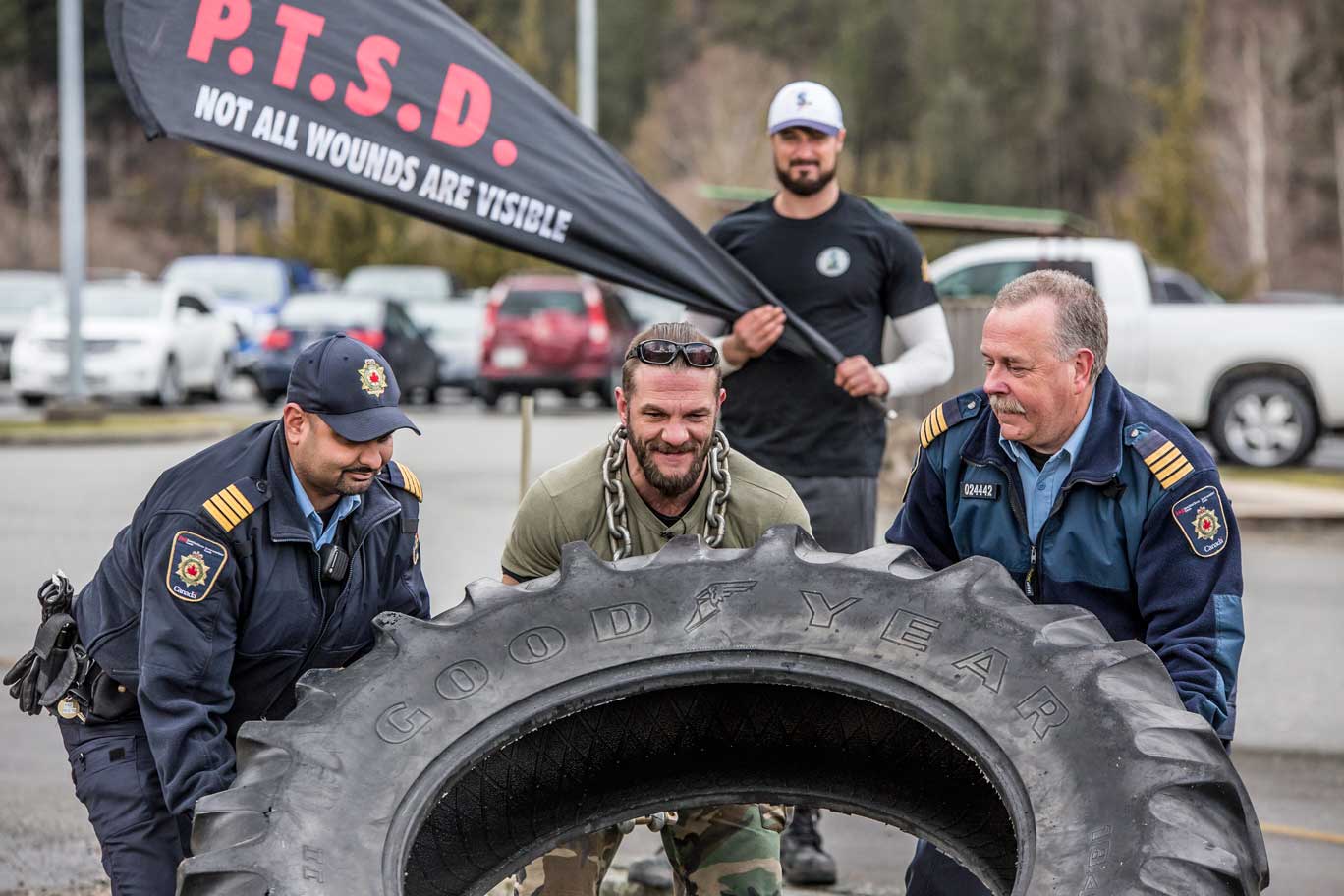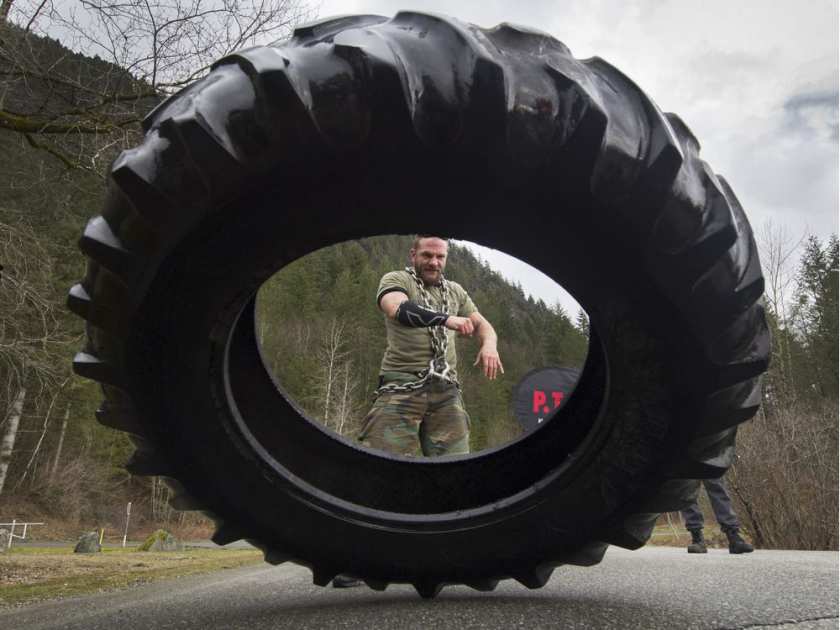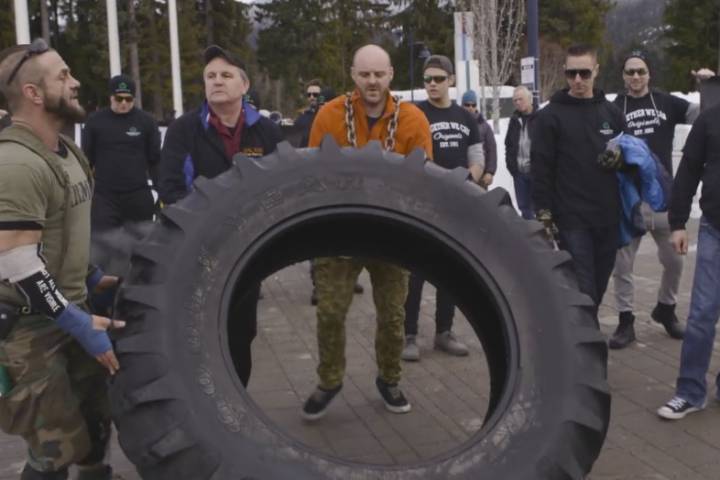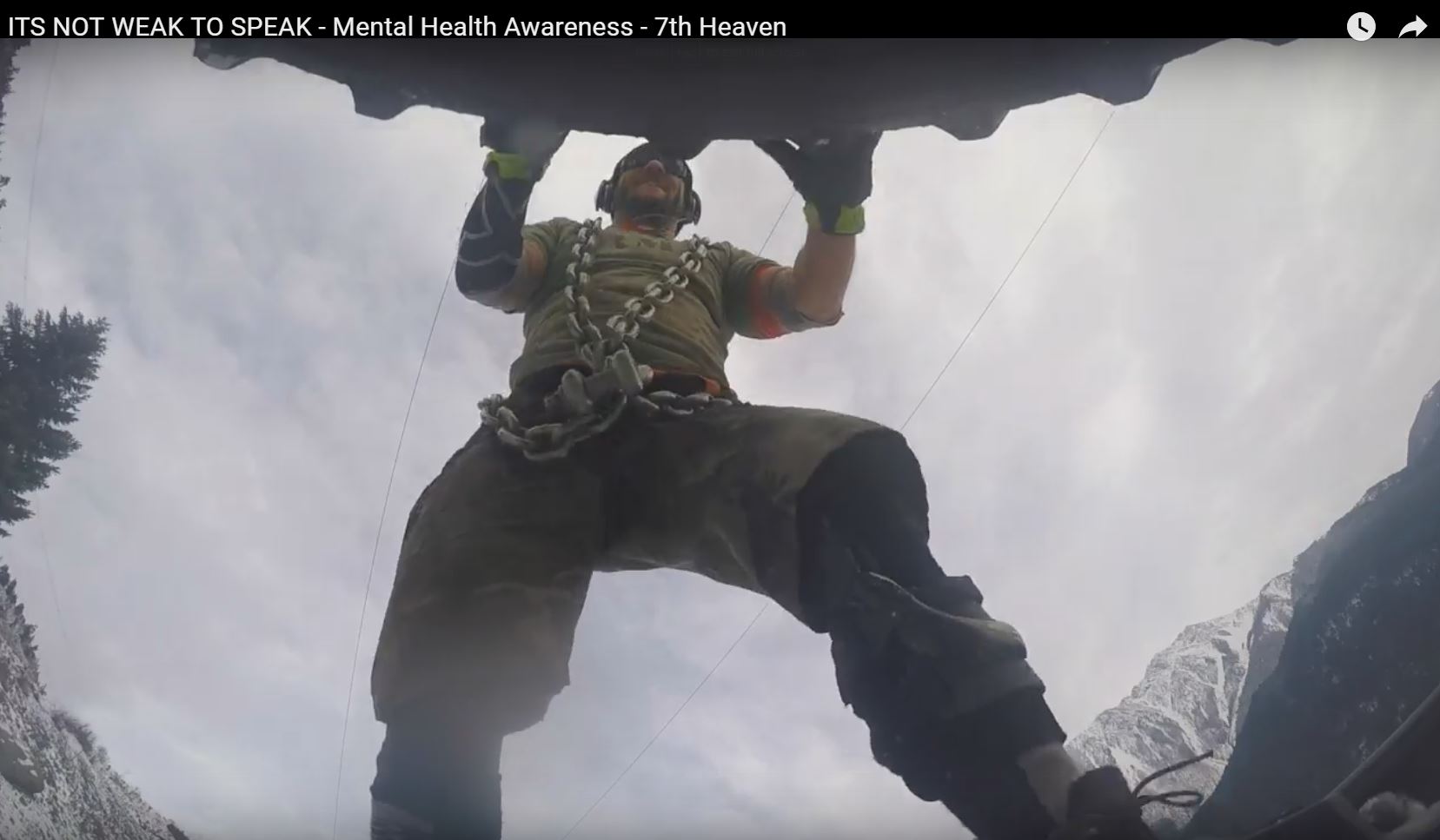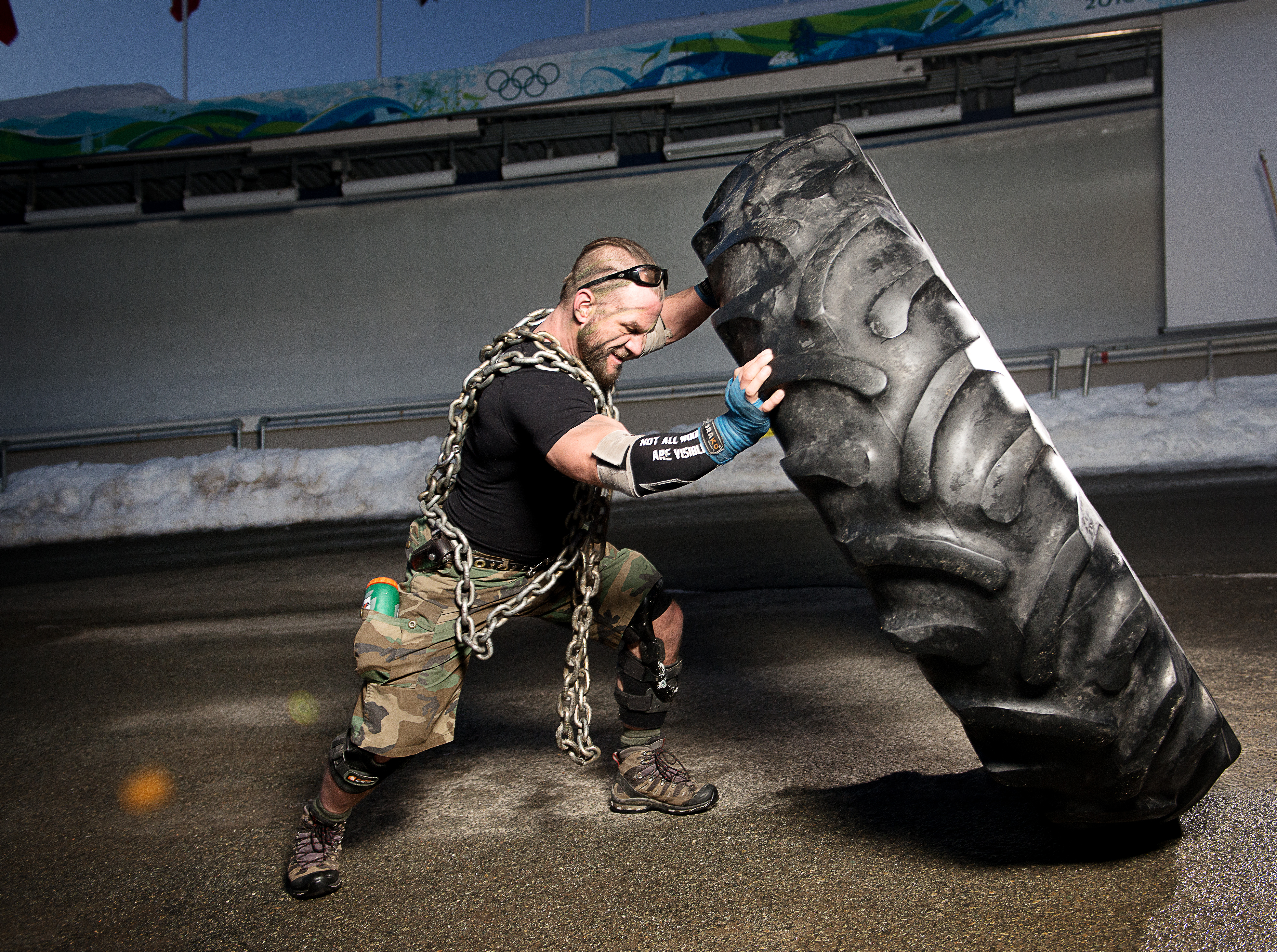Originally posted CTV News Vancouver here
A British Columbia man who was the first responder to a horrific luge accident during the Vancouver 2010 Winter Olympics has finished a personal journey that he undertook in memory of the athlete who died.
Terrance Kosikar arrived at the base of Blackcomb Mountain in Whistler on Saturday, completing the final kilometre of his mission to flip a 400-pound tractor tire for a kilometre a day across seven B.C. mountain peaks, all to raise awareness of post-traumatic stress disorder in first responders.
“We’ve done a kilometre a day for 36 days,” Kosikar said. “We only started out wanting to do 30 days, but we’ve done 36.”
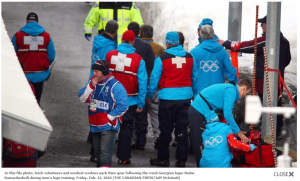
He started the expedition on Feb. 12 to mark the six-year anniversary of the death of Georgian luger Nodar Kumaritashvili during a training run.
Kosikar was well-trained in many life-saving techniques when he arrived to help Kumaritashvili, but says he was not prepared to deal with the emotional impact when he couldn’t revive the athlete.
The physical demands of flipping the tire pale in comparison to the emotional struggles people with PTSD face, he said.
“This challenge has not been tough at all,” Kosikar said. “This is something that I do every day anyways to help manage my anxiety, stress, and depression.”
Kosikar runs Camp My Way, a camp for emergency service providers suffering from PTSD, where they can get away from the demands of daily life and find the time and services they need to learn to manage the condition.
With files from the Canadian Press
Originally posted CTV News Vancouver here



